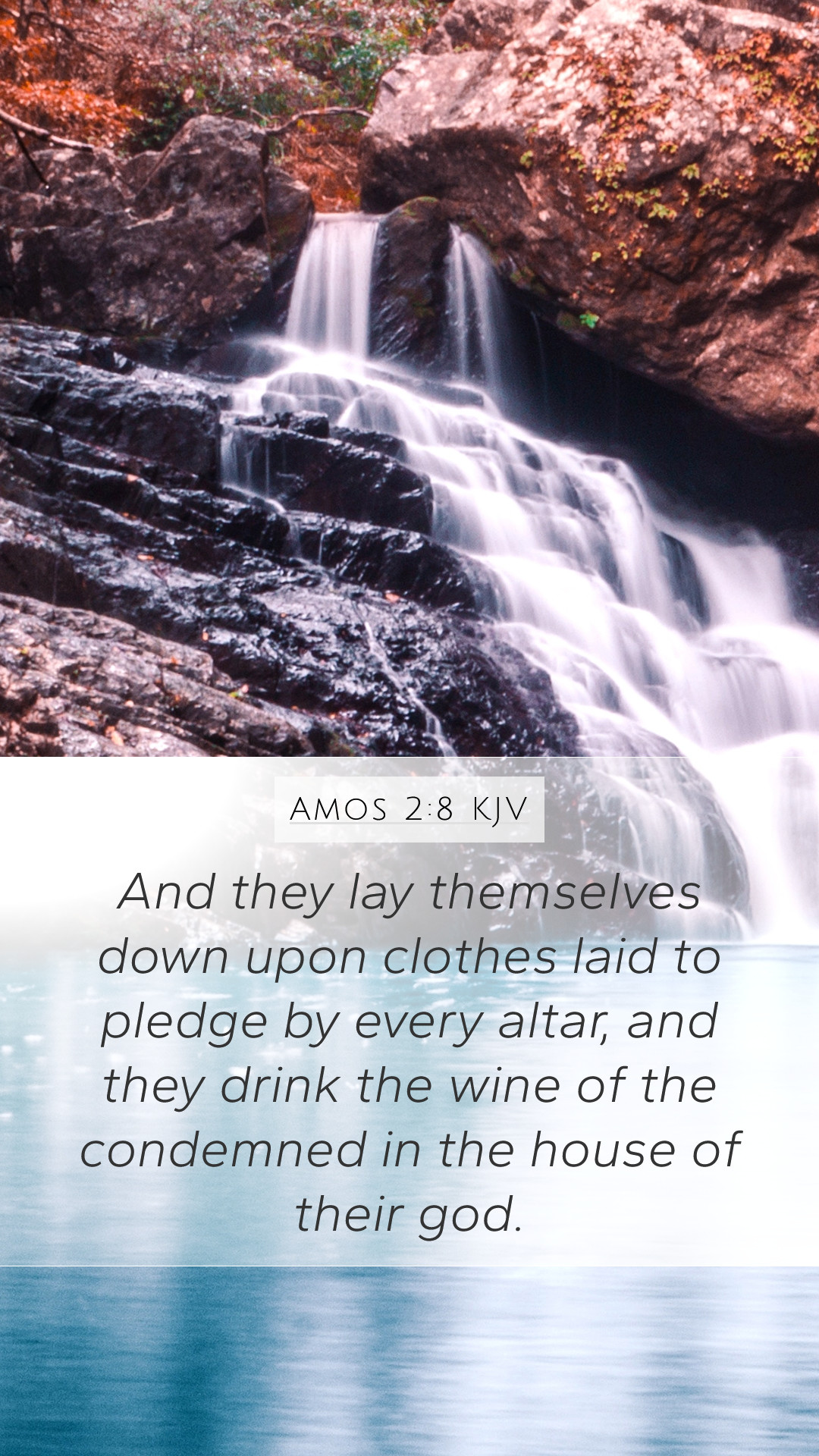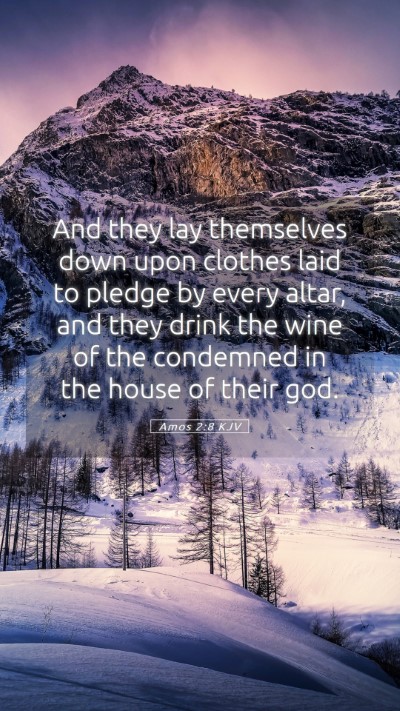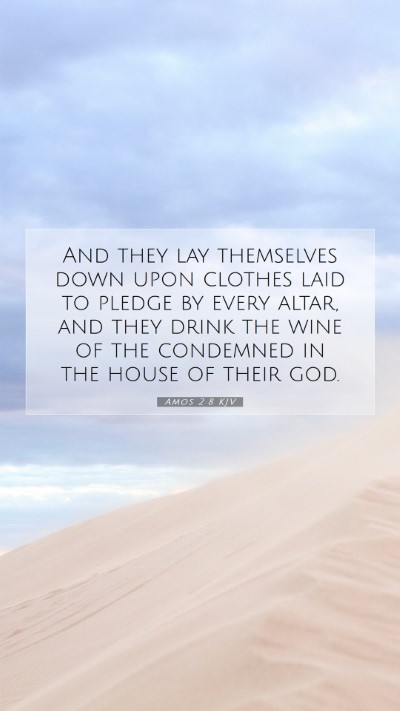Old Testament
Genesis Exodus Leviticus Numbers Deuteronomy Joshua Judges Ruth 1 Samuel 2 Samuel 1 Kings 2 Kings 1 Chronicles 2 Chronicles Ezra Nehemiah Esther Job Psalms Proverbs Ecclesiastes Song of Solomon Isaiah Jeremiah Lamentations Ezekiel Daniel Hosea Joel Amos Obadiah Jonah Micah Nahum Habakkuk Zephaniah Haggai Zechariah MalachiAmos 2:8 Meaning
What is the meaning of Amos 2:8?
And they lay themselves down upon clothes laid to pledge by every altar, and they drink the wine of the condemned in the house of their god.
Amos 2:8 Bible Verse Meaning
Understanding Amos 2:8
Bible Verse: Amos 2:8 - "And they lie down upon clothes laid to pledge by every altar, and they drink the wine of the condemned in the house of their god."
Overview of the Verse
This verse from the book of Amos reflects the corrupt practices of Israel's people, particularly in their worship and social justice. It highlights how the wealthy exploit the poor and dishonor God through their actions, demonstrating a lack of reverence and morality both in their acts of worship and daily life.
Verse Meaning and Exegesis
- Social Injustice: The mention of clothes laid to pledge signifies the exploitation of the poor. In biblical times, taking a garment as a pledge was common, but retaining it overnight was prohibited as it could leave the poor without their basic needs. The failure to return such items illustrates the injustices prevalent in society (Matthew Henry).
- Corruption in Worship: Lying down on these pledged clothes shows a perverse connection between worship and exploitation. The altars became places where corrupt individuals carried out their unjust practices, mixing their idolatry with acts of worship (Adam Clarke).
- Drunkenness and Immorality: The reference to drinking wine in the house of their god indicates a celebration of immorality. This symbolizes how people partake in religious acts while engaging in sinful behavior, showcasing a profound disrespect for God and His commands (Albert Barnes).
- Divine Judgment: The context of Amos emphasizes that God sees these injustices and will bring about judgment. This prophetic warning serves both as a call to repentance and a prediction of forthcoming consequences due to their actions (Matthew Henry).
Historical Context
The book of Amos was written during a time when Israel was experiencing prosperity, yet moral decay was rampant. Amos, a shepherd and fig tree farmer, was called by God to deliver a message of judgment, calling the nation to account for their sins, particularly against the marginalized (Albert Barnes).
Application of the Verse
This verse encourages us to examine our own lives and practices. It brings forth crucial questions about social responsibility and the authenticity of our worship. It serves as a reminder that true worship is not just in rituals but in living out God's commandments of justice and mercy in our interactions with one another (Adam Clarke).
Bible Study Insights
For those studying the Bible, Amos 2:8 provides a profound lesson about the consequences of hypocrisy in worship. It invites readers to not only understand Scripture but also to apply these teachings in their lives, promoting justice and mercy in both personal conduct and communal living.
Additional Cross References
- Exodus 22:26-27: Laws about pledges and garment retention.
- Micah 6:8: What the Lord requires: to do justice, love kindness, and walk humbly with God.
- Isaiah 1:17: A call to seek justice and correct oppression.
- James 2:15-16: A warning against neglecting the needs of others.
- Luke 18:7-8: God’s justice will come to those who cry out to Him day and night.
Conclusion
Amos 2:8 serves as a stark reminder to comprehensively understand Scripture and live out its meanings. Through in-depth Bible verse analysis, believers are encouraged to align their lives with God's principles of justice and integrity, ensuring that their worship reflects their commitment to Him and love for others.


